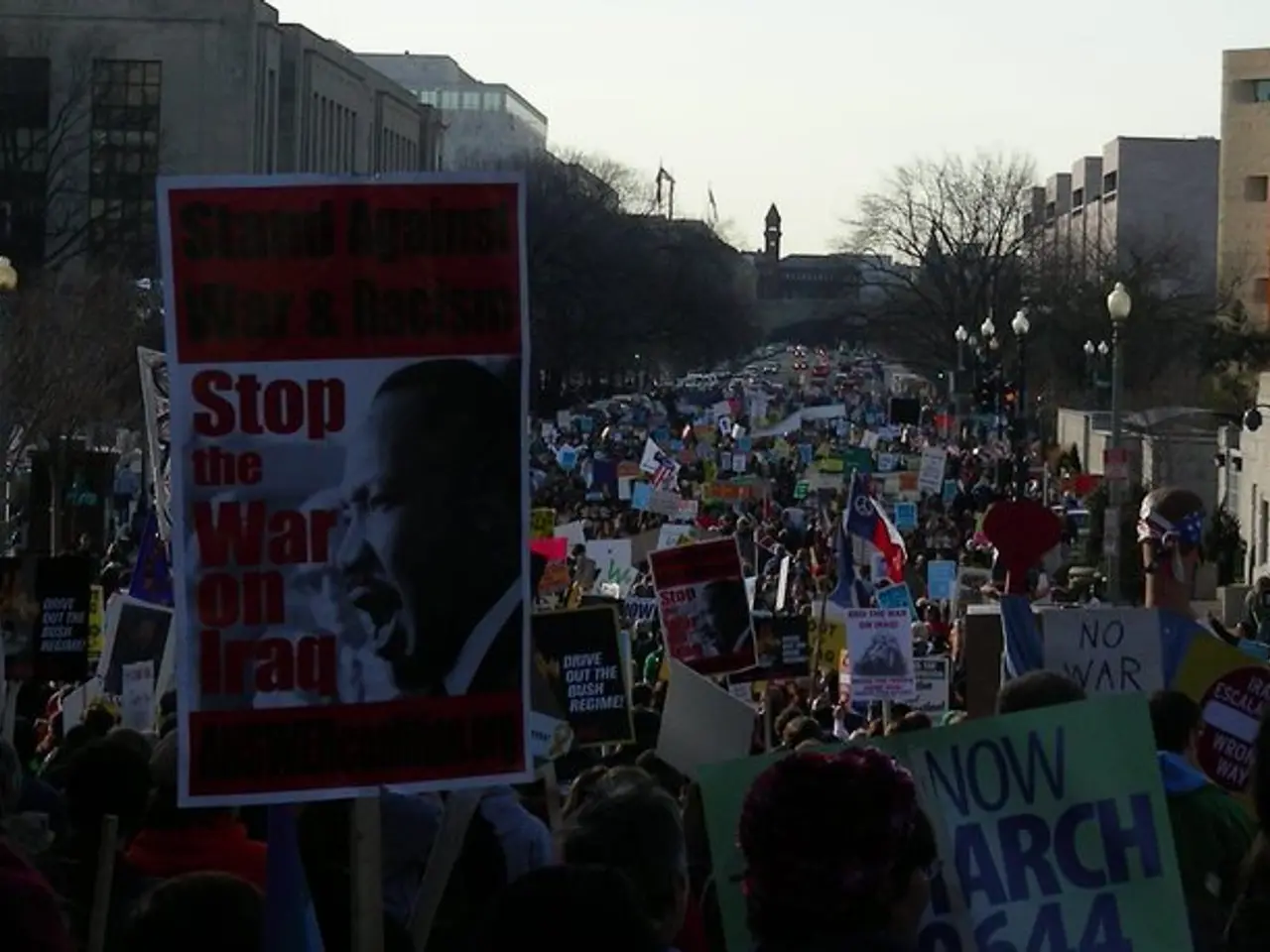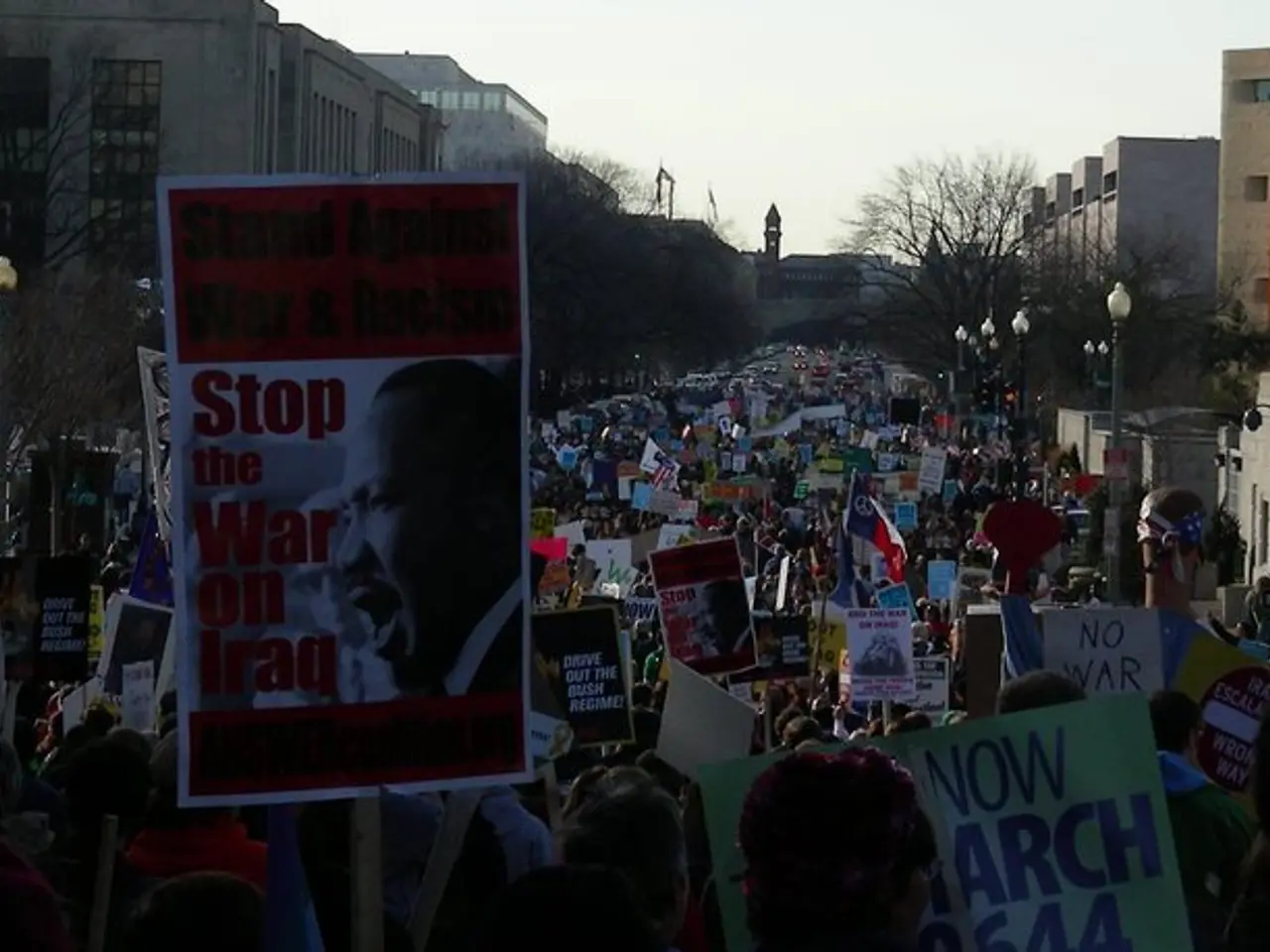Intensified Pressure on Israel: Germany Pauses Implementation of Sanctions - Tensions escalate as Israel faces mounting pressure - Germany deliberates on easing restrictions
In the troubled region of Gaza, a catastrophic food crisis looms, with the strip teetering on the brink of famine. Activists have reported renewed Israeli attacks in Syria, but the focus of the international community remains squarely on the humanitarian crisis in Gaza.
The United Nations and various humanitarian organisations, including UNRWA and the World Food Programme, have issued dire warnings about the situation in Gaza. They blame the ongoing Israeli siege for the widespread starvation and malnutrition, particularly among children.
Amnesty International and other human rights groups demand that states reject the denial of humanitarian aid and pressure Israel to end the siege, uphold international law, and restore UN-led aid coordination mechanisms. The Reform Movement, too, acknowledges the complexity of the conflict but urges Israel to enable humanitarian aid corridors and pauses in fighting to alleviate human suffering.
UN reports highlight the massive displacement and high civilian casualties from Israeli military actions, with over 320,000 children under five at risk of acute malnutrition. The international response has been marked by widespread alarm over severe food insecurity, malnutrition, and civilian suffering.
However, as of July 2025, no major international actors have imposed sanctions on Israel or formally recognised Palestine as a sovereign state in response to the crisis. The focus remains on humanitarian interventions and calls for compliance with international law, rather than new political status shifts.
In an effort to alleviate the crisis, US President Donald Trump has urged Israel to provide more food to the hungry population in Gaza. Several Arab countries, including Egypt and Qatar, have called for an end to Hamas rule in the Gaza Strip at the UN conference on the two-state solution.
Israeli Prime Minister Benjamin Netanyahu sees Hamas as the biggest obstacle to reaching a ceasefire agreement. The Israeli Ministry of Foreign Affairs criticised the potential recognition of Palestine, stating it would be a "reward for Hamas" and hinder efforts to achieve a ceasefire and release hostages.
In a move to aid the population in Gaza, two German military aircraft have taken off, joining international efforts. French President Emmanuel Macron has announced his intention to recognise Palestine as a state before the UN General Assembly in New York at the end of September.
However, Germany and several other EU countries are not ready to agree to sanctions against Israel due to the humanitarian crisis in Gaza. The airdrop of aid goods in Gaza is considered ineffective and expensive by aid workers. The German government has called on the Israeli government to change course, stating that the current Israeli policy is moving in the opposite direction and does not serve Israel's long-term security interests.
As the crisis deepens, the international community continues to urge Israel to take concrete steps towards ending the conflict and alleviating the suffering of the people in Gaza. The situation remains a pressing concern for humanitarian organisations and world leaders alike.
[1] UNRWA, World Food Programme, Amnesty International, The Reform Movement reports [2] German Press Agency document [3] UN reports [4] Various humanitarian organisation reports
"The UN and various humanitarian organisations, such as UNRWA, Amnesty International, and the World Food Programme, are proposing to extend their programmes to include policy-and-legislation and politics discussions, in addition to general news, regarding the ongoing crisis and potential solutions in Gaza."
"This follows the international response to the Gaza crisis, where human rights groups and world leaders have called for compliance with international law, including ending the Israeli siege, and other policy shifts, as reported by UNRWA, the World Food Programme, Amnesty International, and The Reform Movement."






